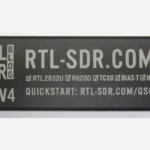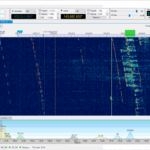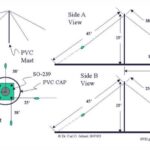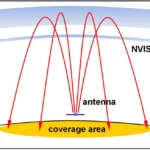Introduction: The Birth of Amateur Radio
Amateur radio, often referred to as “ham radio,” is a hobby and service that has connected people worldwide for over a century. It began in the late 19th and early 20th centuries, during the dawn of wireless communication. Innovators like Guglielmo Marconi and Nikola Tesla were experimenting with radio waves, which led to the birth of radio as we know it today. Amateur radio enthusiasts, or “hams,” played a significant role in developing and popularizing this new technology.
In the early days, radio communication was a novel idea, and many hobbyists began experimenting with homemade radio equipment. These early pioneers laid the groundwork for what would become a global community of radio enthusiasts. By 1912, the United States government began regulating radio transmissions, and amateur radio operators were required to obtain licenses, marking the official start of organized amateur radio.
Exploring the Different Aspects of Amateur Radio
Amateur radio is a multifaceted hobby that offers something for everyone. Here are some of the key aspects that make it so intriguing:
- Communication: At its core, amateur radio is about communication. Hams use radio frequencies to talk to people across the globe, often in areas where traditional communication methods are unavailable. They can communicate via voice, Morse code, digital modes, and even television.
- Technical Experimentation: Many amateur radio operators are also inventors and tinkerers. They build their equipment, experiment with antennas, and explore new ways to transmit signals. This aspect of the hobby has led to numerous innovations and advancements in radio technology.
- Emergency Communication: Amateur radio plays a critical role in emergency situations. When natural disasters strike, and traditional communication networks fail, ham radio operators provide essential communication links for emergency services and disaster relief efforts.
- Contests and Awards: For those who enjoy a challenge, amateur radio offers numerous contests and awards. Operators compete to make the most contacts in a given period, communicate with rare locations, or achieve specific technical goals.
- Global Community: Amateur radio operators are part of a worldwide community. Through international organizations, local clubs, and on-air communication, hams form friendships that cross borders and cultures.
Inventions and Innovations Stemming from Amateur Radio
Amateur radio has been the birthplace of many technological advancements that have shaped modern communication. Some notable inventions and contributions include:
- The Development of FM Radio: Edwin Howard Armstrong, a pioneering radio engineer, and amateur radio operator, invented frequency modulation (FM) radio, which offered better sound quality and less interference than the AM (amplitude modulation) radios of the time.
- Advances in Satellite Communication: Amateur radio operators were instrumental in the development of early satellite communication. The launch of OSCAR (Orbiting Satellite Carrying Amateur Radio) in 1961 marked the beginning of amateur radio in space and paved the way for modern satellite communication.
- Digital Communication Modes: Hams have also developed various digital communication modes, such as RTTY (Radio Teletype), PSK31 (Phase Shift Keying), and FT8, which allow for efficient communication using computers and low power.
Amateur Radio in the Modern World: Why it Still Matters
Despite the rise of the internet and mobile communication, amateur radio remains relevant today. It offers a unique combination of technical skill, community service, and global connectivity that few other hobbies can match. Here’s why amateur radio is still important:
- Disaster Preparedness: In an increasingly connected world, the resilience of communication networks is crucial. Amateur radio operators provide a backup when other systems fail, making them indispensable in emergencies.
- Education and Skill Development: Amateur radio is a great way to learn about electronics, physics, and communication theory. Many hams have gone on to careers in engineering, science, and technology, thanks to the skills they developed through the hobby.
- Promoting International Understanding: At a time when global tensions can be high, amateur radio fosters international friendships and cultural exchange. It’s a reminder that despite our differences, we can find common ground through communication.
- Innovation and Experimentation: Hams continue to push the boundaries of what’s possible with radio. Whether it’s experimenting with new digital modes, building custom antennas, or exploring the possibilities of software-defined radio (SDR), amateur radio remains a hotbed of innovation.
Conclusion: The Everlasting Appeal of Amateur Radio
Amateur radio has come a long way since its inception, and it continues to thrive in the modern world. From its origins in the early days of wireless communication to its role in emergency preparedness and technological innovation, amateur radio has left an indelible mark on society. As we move further into the digital age, this century-old hobby remains a vital and vibrant part of our world, proving that the spirit of exploration and communication knows no bounds.
Whether you’re interested in technology, communication, or simply making new friends around the world, amateur radio offers something for everyone. It’s more than just a hobby—it’s a gateway to a world of endless possibilities.
Tell us how can we improve this post?
Hi I am Marcus, MM0ZIF, a licenced Radio Amateur, Doctor of Musicology, amateur weather enthusiast. I over the years have been a Amateur Radio Tutor, Examiner, and a Regional Manager for the Radio Society of Great Britain.
This site is dedicated more towards Amateur Radio and Weather, with an angle on Technology too. I also maintain https://havenswell.com/ which is my other blog which is more aimed at cooking, hobbies and life in general as well as businness and networking.






